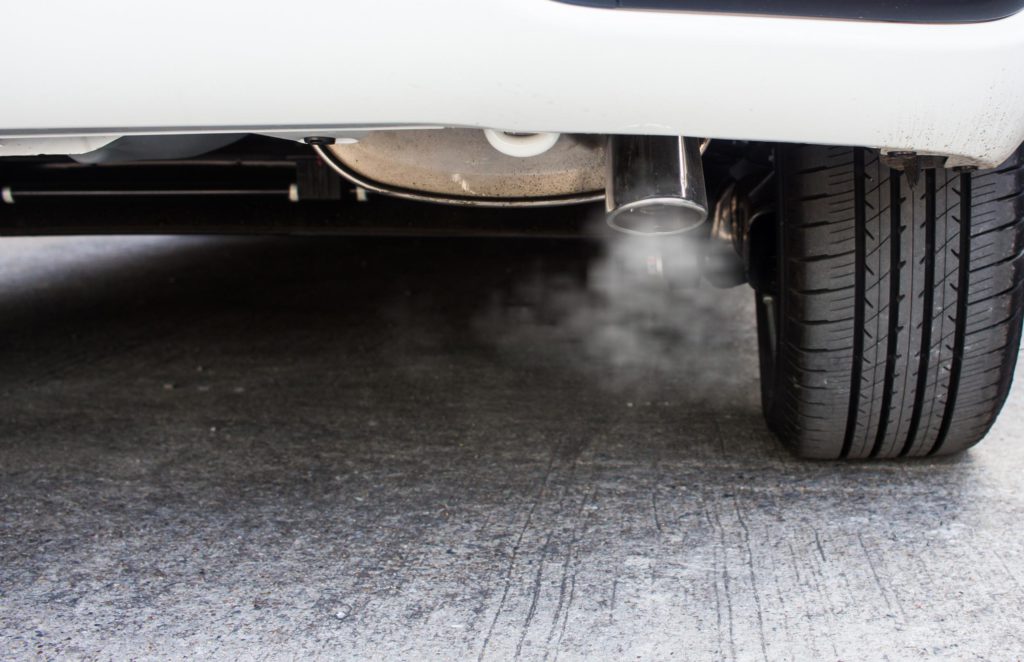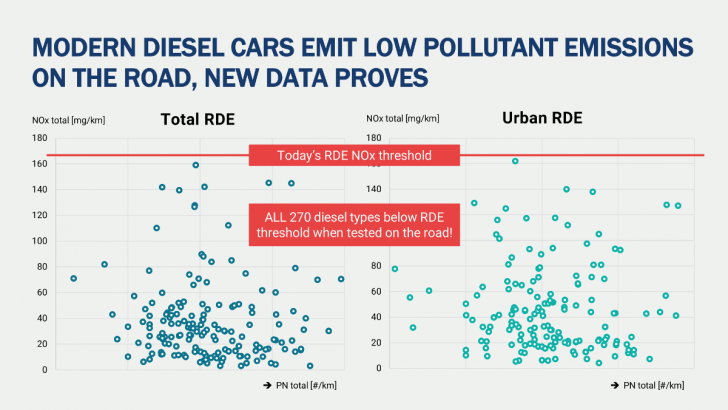ACEA research confirms new diesels emit fewer dangerous pollutants
06 November 2018

6 November 2018
New data released by the European Automobile Manufacturers Association (ACEA) provides evidence that latest-generation diesel vehicles emit low pollutant emissions on the road.

The industry body says that its data was measured in real-driving conditions by the drivers of various national type-approval authorities. As governments clamp down on diesel sales, with measures such as increased taxes on new cars in the UK, the results of the study show that decisions penalising new vehicles are more likely to damage the environment.
Some 270 new types of diesel cars type-approved against the latest Euro 6d-TEMP standard were introduced on the European market over the past year. The new data shows that all of these diesel cars performed well below the NOx threshold of the real driving emissions (RDE) test, which applies to all new car types since September 2017. What is more, already today most of these vehicles show results that are below the stricter NOx threshold that will be mandatory from January 2020.
RDE measures key pollutants, such as NOx and particles, emitted by cars while driven on public roads over a wide range of conditions. RDE, therefore, ensures that pollutant emission levels measured during the laboratory test (WLTP) are confirmed on the road and that the legal thresholds are not exceeded during day-to-day driving.
Each of these 270 RDE-compliant diesel vehicle types represents a whole ′family’ of similar cars of differing variants, so a multitude of low-emitting diesel cars are now available on the market. The German automobile club, ADAC, estimates that there are more than 1,200 different RDE-compliant cars available today. Moreover, their availability is increasing rapidly.
Erik Jonnaert, ACEA Secretary General, says: ″These new findings prove that modern diesel cars, supported by fleet renewal policies and combined with alternative powertrains, will play a strong role in helping cities move towards compliance with air quality targets. In parallel, diesel vehicles will continue to remain important for reducing CO2 emissions in the short and medium term, even though all manufacturers are expanding their offer of electrically-chargeable cars.
′Automakers have made major investments to quickly deliver these massive reductions in NOx emissions,’ he adds. ′It is important that we stop demonising diesel technology as a whole. Instead, we need to differentiate between the old diesel fleet and the latest generation of vehicles.″
These findings are supported by third parties. ADAC recently performed independent on-road testing of RDE-compliant diesel vehicles and found that modern diesels emit 85% less NOx on average than Euro 5 cars, concluding that the latest diesels are ″very clean″. Their additional testing demonstrated that the best-performing RDE-compliant Euro 6 diesels emit as much as 95-99% less NOx than Euro 5 vehicles.
Penalties and confusion caused by government and media talk over diesel have caused the market to collapse across Europe, with drivers turning to petrol more than alternative-fuel options. This led to a rise in CO2 levels in Europe during 2017.